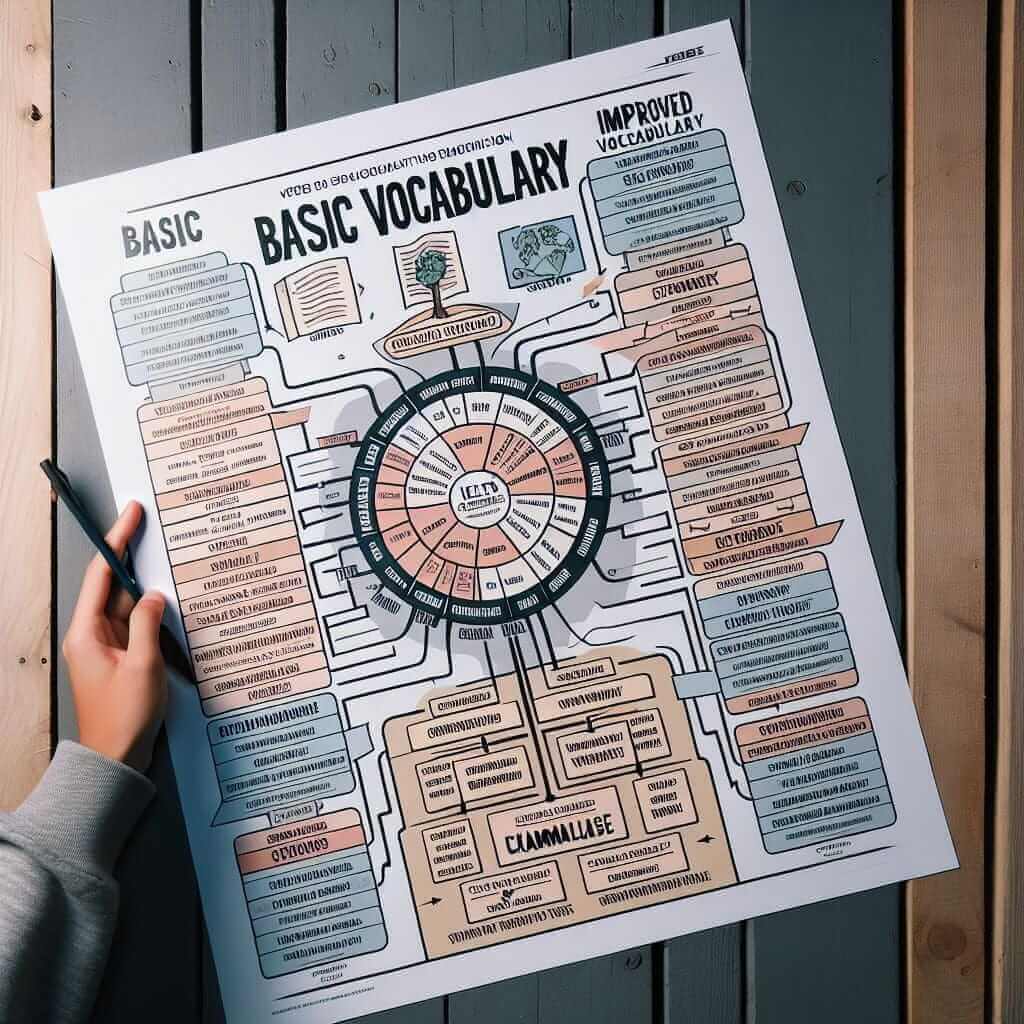As an IELTS instructor with over two decades of experience, I’ve witnessed countless students grapple with the challenge of incorporating advanced vocabulary into their IELTS Speaking test. Many mistakenly believe that using obscure words will impress the examiner, but that’s far from the truth. The key to success lies in using smart vocabulary – words and phrases that are not only impressive but also relevant, accurate, and demonstrate your depth of understanding.
Nội dung bài viết
- Understanding the Importance of Smart Vocabulary
- Effective Strategies for Using Smart Vocabulary
- 1. Go Beyond Simple Synonyms
- 2. Incorporate Idioms and Collocations Naturally
- 3. Utilize a Variety of Grammatical Structures
- Illustrative Examples from IELTS Speaking Tests
- Top Tips for Mastering Smart Vocabulary:
- Conclusion
This comprehensive guide will demystify the art of using smart vocabulary in the IELTS Speaking test, providing you with practical strategies and insights to enhance your fluency and achieve your desired band score.
Understanding the Importance of Smart Vocabulary
While it’s tempting to memorize lists of high-level vocabulary, simply inserting these words awkwardly into your responses can actually hinder your performance. The IELTS Speaking test assesses your ability to communicate effectively, and that involves:
- Fluency and Coherence: Using vocabulary that flows naturally with your speech.
- Lexical Resource: Demonstrating a wide range of vocabulary appropriate to the topic.
- Grammatical Range and Accuracy: Using vocabulary correctly in grammatically accurate sentences.
- Pronunciation: Saying words clearly and with correct stress and intonation.
Therefore, “smart vocabulary” refers to words and phrases that:
- You understand fully and can use confidently in a sentence.
- Are relevant to the topic being discussed.
- Enhance your meaning and add nuance to your responses.
- Showcase your grammatical range and accuracy.
Effective Strategies for Using Smart Vocabulary
1. Go Beyond Simple Synonyms
One of the most effective ways to elevate your vocabulary is to move beyond basic synonyms. Instead of always relying on common words like “good” or “bad,” challenge yourself to explore more descriptive alternatives:
Example:
- Basic: “The movie was good.”
- Improved: “The movie was captivating.” “The movie was thought-provoking.” “The movie was visually stunning.”
By expanding your vocabulary bank, you can choose words that precisely convey your meaning and impress the examiner.
2. Incorporate Idioms and Collocations Naturally
Idioms and collocations are key ingredients in natural-sounding speech. However, it’s crucial to use them judiciously and only when they fit the context seamlessly.
Example:
- Instead of: “I was very scared during the storm.”
- Consider: “The storm was so intense it sent shivers down my spine.”
Remember, the goal is not to cram in as many idioms as possible but to use them strategically to demonstrate your language proficiency.
3. Utilize a Variety of Grammatical Structures
Smart vocabulary goes hand-in-hand with using a variety of grammatical structures. Don’t be afraid to experiment with complex sentences, conditional clauses, or relative clauses to showcase your grammatical range.
Example:
- Simple: “I like reading books.”
- Complex: “One of my passions is immersing myself in a captivating novel, which allows me to escape into different worlds and explore diverse perspectives.”
By combining sophisticated vocabulary with advanced grammar, you demonstrate a higher level of language control.
Illustrative Examples from IELTS Speaking Tests
Let’s analyze how you can apply these strategies to actual IELTS Speaking prompts:
Prompt: Describe a time when you learned something new.
Basic Response: “I learned to play the guitar. It was hard, but I practiced a lot. Now I am good.”
Improved Response: “I recently embarked on the challenging yet rewarding journey of learning to play the guitar. The intricate finger placements and chord progressions initially seemed insurmountable, but through consistent practice and perseverance, I gradually gained proficiency. Now, I can confidently strum a few tunes and find immense satisfaction in my newfound musical ability.”
Analysis: The improved response utilizes more descriptive verbs (embarked, challenging, rewarding, intricate), stronger adjectives (insurmountable, consistent, immense), and incorporates a more sophisticated sentence structure.
 IELTS Vocabulary Improvement
IELTS Vocabulary Improvement
Top Tips for Mastering Smart Vocabulary:
- Read Widely: Expose yourself to different writing styles and genres to expand your vocabulary organically.
- Keep a Vocabulary Notebook: Jot down new words and phrases you encounter, along with their definitions and example sentences.
- Practice Speaking Regularly: Engage in English conversations with native speakers or language partners to build your confidence in using advanced vocabulary.
- Record Yourself Speaking: Listen back to identify areas where your vocabulary can be improved or sounds unnatural.
- Don’t Be Afraid to Experiment: Try using new words and phrases in your daily life, even if it feels a little uncomfortable at first.
Conclusion
Remember, mastering smart vocabulary for the IELTS Speaking test is a journey, not a sprint. By adopting a strategic approach that focuses on natural integration, clarity, and accuracy, you’ll significantly enhance your speaking fluency and impress the examiner with your sophisticated language skills. Good luck!


